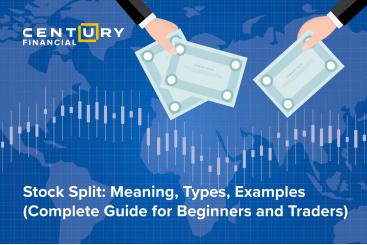Friday, March 10, 2023
Will the US face a recession? And how will it impact the markets?
تم إعداد هذا المنشور من قبل سنشري للاستشارات

.jpg)
The past year, the view about the US economy has been primarily bleak. It has been powered with negativity and spooked market sentiments. Inflation hit a four-decade high, consumers were spending less and interest rates continued to surge. Plus, the Ukraine-Russia war raged on, the resurgence of COVID-19 in China and the crypto market suffered heavy losses. As a result, it feels like 2023 is heading for a recession.
Yet, in recent months there have been positive signals. Inflation has shown signs it is easing, the ease of restrictions in China and the rise in US wages, the financial markets have a more cheerful outlook.
Maybe a recession isn't inevitable after all.
So, let's look and see what the rest of 2023 could look like.

Growth will go slow but not recede
There is an expectation that the global economy will grow at a slower pace compared to last year. Yet, this doesn't automatically mean global economies will face a recession. According to industry experts, the world economy is most likely to grow by 2% in 2023 rather than 3.3% in 2022.
The reason we aren't likely to see a recession just yet is that industrialized nations are still showing tight labour market trends. Additionally, regional dynamics today also seem to be extremely divergent, lowering the chances of a global recession, as seen during the 2008 subprime crisis.

Inflation, interest rates to cool off
If 2022 showcased historically high levels of inflation, 2023 is likely to see an ease in inflation rates within the first half of the year. This is particularly down to several central banks putting in place policies to tame or control inflation.
Inflation is likely to have peaked. Further, supply chain issues and bottlenecks are expected to ease, and consumer demand could normalize going ahead. These factors could ease the stickiness in inflation, going ahead.
If inflation continues to drop, the need for interest rate hikes also diminishes. And yes, it is fair to expect a challenging year ahead, global economies can still move forward.

Equities or fixed income, what to choose
For investors seeking maximum yields out of their investments, their best bet would be on equities rather than fixed income. True, the financial markets may have a challenging first half in 2023, as weak demand, margin compression, lower pricing power and tighter financial conditions will impact equities. Still, it will improve as inflation cools off, and central banks prioritizing growth will support a strong recovery. Also, low valuations of stocks will only attract consumers and boost equity markets.
Even with the stock markets having a slow and challenging start at the beginning of the year, the opportunities for growth are still there. It could be an excellent time to look at technology stocks. Consider renewable and energy stocks as well, as countries continue to push for energy security and reduce their dependency on fossil fuels. With the Russian invasion of Ukraine not showing signs of slowing down, countries will explore their domestic renewable generation capacities.

The US dollar still has a lot to offer
The US dollar appears well-positioned boosted by a hawkish Federal Reserve that has lifted interest rates to a 15-year high to battle inflation. Fed funds rates, which stood at 4.5%, could likely reach 5.25% in 2023. Yet, its dominance could fall into question when the Fed begins cutting interest rates later in the year.
It could be a tricky year for the greenback but given it's a safe haven if a recession occurs, it would be unwise to write it off.
So, as the year progresses, yes there is a potential for a recession, but it is likely to be a mild recession.
لا تقدم شركة سنشري للإستشارات والتحليل المالي ش.ذ.م.م (الشركة) محتوى هذه المدونة، بما في ذلك أي أبحاث أو تحليلات أو آراء أو توقعات أو أي معلومات أخرى (يُشار إليها مجتمعةً باسم "المعلومات")، إلا لأغراض التسويق والتثقيف وإتاحة المعلومات العامة. ولا يُفسَّر ذلك على أنه نصيحة استثمارية أو توصية أو دعوة لشراء أو بيع أي أدوات مالية.
كما يجوز نشر هذه المعلومات عبر قنوات مختلفة، بما في ذلك موقع الشركة الإلكتروني، ومنصات الغير، والنشرات الإخبارية، والمواد التسويقية، ورسائل البريد الإلكتروني، ووسائل التواصل الاجتماعي، وتطبيقات المراسلة، والندوات الإلكترونية، وغيرها من وسائل التواصل. وبينما تسعى الشركة لضمان دقة المحتوى، فإنها لا تضمن اكتماله أو موثوقيته أو تحديثه في الوقت المناسب. وعليه، فأي قرارات تُتخذ بناءً على هذه المعلومات تكون على مسؤوليتك الشخصية. ولا تتحمل الشركة أي مسؤولية عن أي خسارة أو ضرر ناتج عن استخدامها.
ينطوي تداول المنتجات المالية على مخاطر كبيرة، بما لا يتناسب مع جميع المستثمرين. فيُرجى التأكد من وعيك التام بالمخاطر، وطلب الاستشارة المهنية المتخصصة إذا لزم الأمر.
يُرجى الاطلاع على بيان كشف المخاطر الشامل المتوفر على موقعنا الإلكتروني.

__1439480927.jpg)

__310747107.jpg)












